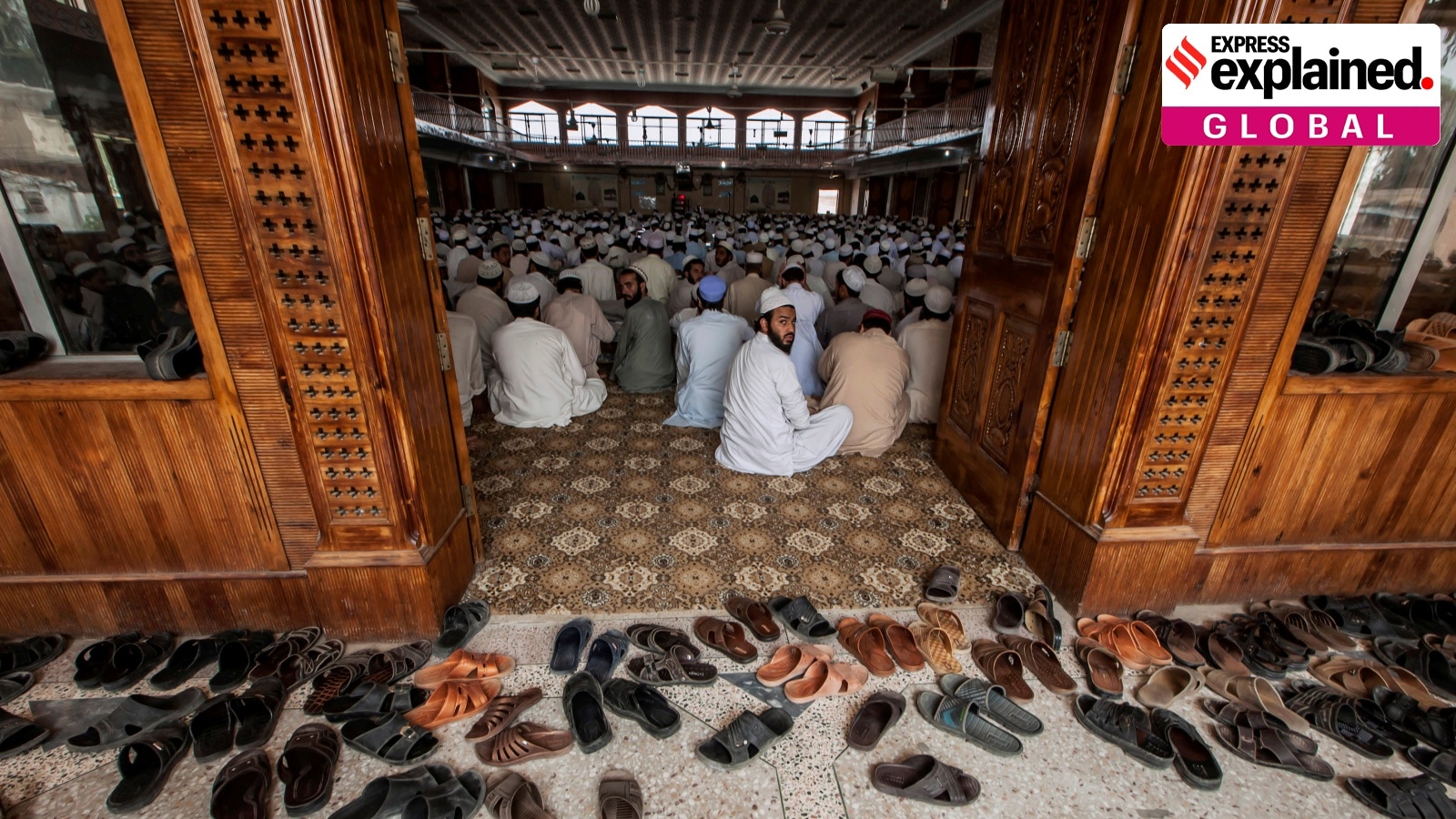Blast at Darul Uloom Haqqania: The story of Pak’s ‘University of Jihad’ | Explained News
Suicide Attack Rocks Pakistani Seminary, Leaving Six Dead
A devastating blast at an Islamic religious school in Pakistan, known as Pakistan’s "University of Jihad", has left at least six people dead, including the head of the school, Hamid ul Haq. The explosion occurred at the mosque within the Darul Uloom Haqqania seminary in the Khyber Pakhtunkhwa province.
The Origin
Established in 1947, Darul Uloom Haqqania is a renowned seminary located in Akora Khattak, approximately 55 kilometers from the northern city of Peshawar. The school is home to around 4,000 students who are provided with free education, clothing, and food.
The seminary was founded by Sheikh Abdul Haq, who was educated at Darul Uloom Deoband seminary in Deoband, India. This seminary was the birthplace of the Deobandi movement, which emphasized a return to the core principles of Islam.
The Transformation
However, Darul Uloom Haqqania did not gain international attention until the 1980s. After Abdul Haq’s death, his son, Sami ul Haq, took over the seminary in 1988 and began to propagate the idea of jihad as a "compulsory undertaking on all Muslims of fighting age." Sami ul Haq transformed the school into a training ground for future Taliban leaders who would fight against the Soviet Union in Afghanistan.
The Rise of the Taliban
Under Sami ul Haq’s leadership, Darul Uloom Haqqania became a significant incubator of Taliban ideology. Notable alumni include Mullah Omar, founder of the Taliban, and Jalaluddin Haqqani, who established the Haqqani network, responsible for hostage-taking and targeted assassinations.
Asim Umar, who was once the leader of al-Qaeda’s South Asia wing, was also taught at the school. The seminary maintained its ties to the Taliban leaders who took control of Kabul in the mid-1990s. After the Soviet Union withdrew from Afghanistan, the seminary produced scores of insurgents who fought against the US-backed government.
The "Father of Taliban"
Sami ul Haq earned the nickname "Father of Taliban" for his role in nurturing the organization. His son, Hamid ul Haq, took over the seminary after his father’s assassination in 2018 and was killed in the recent blast.
The blast at Darul Uloom Haqqania highlights the complexities of Pakistan’s religious educational system, which has been linked to the Taliban and other militant groups. As the country grapples with the consequences of terrorism, it is essential to understand the history of Pakistan’s "University of Jihad" and its impact on regional politics.
Conclusion
The blast at Darul Uloom Haqqania serves as a poignant reminder of the continuing threat posed by terrorism in Pakistan. As the country mourns the loss of lives, it is crucial to reflect on the seminary’s role in shaping the region’s political landscape. The question remains: Can Pakistan appease its extremist militant groups, or will the violence continue to haunt the region?

Live News Daily is a trusted name in the digital news space, delivering accurate, timely, and in-depth reporting on a wide range of topics.
